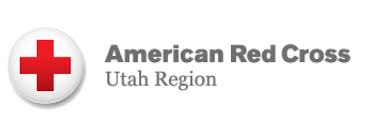When panic attacks strike, finding a quick and reliable panic attack treatment is paramount. This article dives into effective panic attack treatments that help relieve symptoms and prevent future episodes, providing a sense of control over these daunting experiences.
We understand how frightening and isolating panic disorder can be for both teens and their families. At WayPoint Academy, we offer a comprehensive program designed to address the underlying causes of panic attacks and empower teens to manage their anxiety effectively.
Here are the top three benefits your teen and family will gain by enrolling at WayPoint Academy:
- Evidence-Based Treatment: Our program utilizes proven techniques like Exposure Response Therapy (ERP) – a gold standard treatment for anxiety disorders. ERP helps teens gradually confront their triggers in a safe and controlled environment, building confidence and reducing fear.
- Holistic Support for Lasting Change: We go beyond just academics. Our compassionate team of therapists, educators, and wellness professionals create a supportive environment that addresses your teen's emotional, physical, academic, and social well-being. This holistic approach helps teens develop healthy coping skills and resilience.
- Stronger Family Unit: Panic disorder can strain family dynamics. Through family therapy sessions, we equip you with the tools to communicate effectively, understand your teen's struggles, and provide the support they need for a successful recovery.
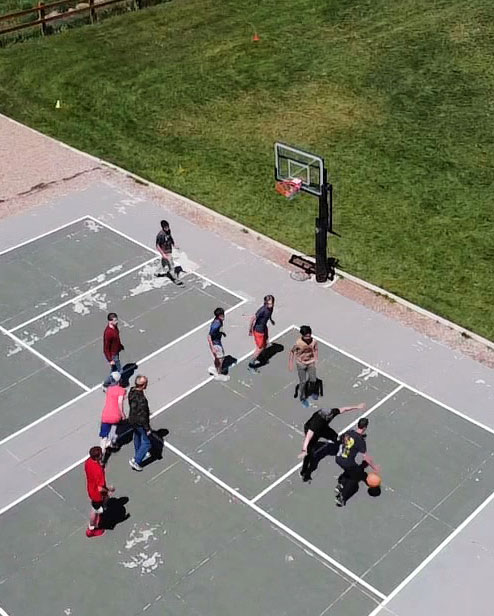
Don't let anxiety control your family's future. If your teen is struggling with panic attacks, WayPoint Academy can help. Our anxiety treatment center provides a comprehensive approach to recovery that equips teens with the tools and support they need to overcome anxiety and succeed. Let us help your teen thrive.
Contact WayPoint Academy today to learn how our specialized panic disorder treatment center can guide your teen toward a brighter, more fulfilling future.
If you’d like to learn more about the treatment of panic disorder and panic attacks in teens. This article is meant to be as extensive as possible and will probably include sections that may not interest you. Please use the table of contents to find the information you need.
What is a Panic Attack?
Panic attacks resemble an overly sensitive alarm system, erroneously indicating danger when none exists. They present as abrupt surges of overpowering fear accompanied by crippling physical responses. Panic attacks can result in developing a fear of losing control and escalate the need to find answers and relief. Understanding the type of panic attack can guide families in choosing the right treatment option and lead to better outcomes and quicker recovery.
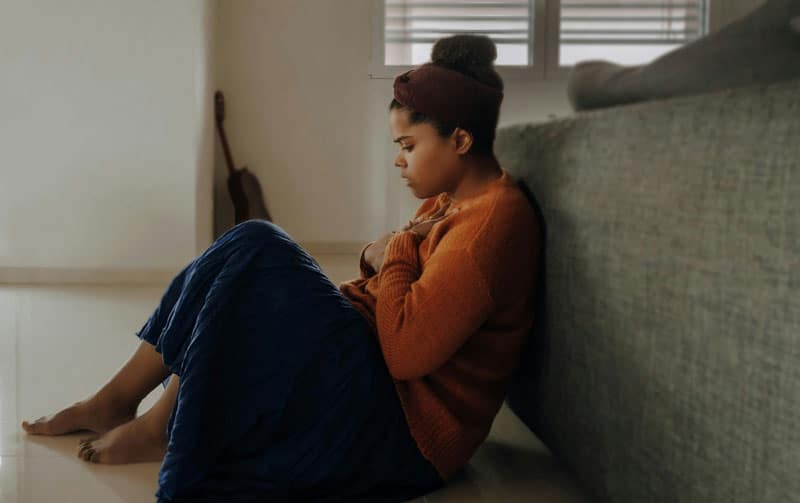
Types of Panic Attacks
Two main forms of panic attacks exist: those that are anticipated and those that come without warning. Expected panic attacks come about as predictable responses to certain situations or triggers. On the flip side, unexpected panic attacks seem to strike suddenly, catching people off guard with their unforeseeable nature.
Expected Panic Attacks
Panic attacks that can be anticipated occur as a result of the body’s erroneous reaction to what it views as imminent dangers. These episodes are typically set off by specific fears or stressors, such as the claustrophobic sensation experienced in an elevator or anxiety about flying, making them foreseeable events. Recognizing these catalysts is crucial for managing the attack and plays a key role in averting the next panic attack.
Unexpected Panic Attacks
Unexpected panic attacks can be scary because they seem to happen without any warning. Not knowing when another one might happen can make the anxiety even worse. It's tough to deal with the uncertainty and distress that comes with these unpredictable events. While unexpected panic attacks seem sudden, an experienced therapist can usually help your teen trace their panic attacks back to certain events that lead up to them.
What causes panic attacks?
Panic attacks may stem from a multifaceted combination of factors including genetic tendencies, stress in one’s surroundings, mood disorders, other mental health disorders, and various biological influences. These episodes can be set off by diverse catalysts such as hyperventilation and consistent exposure to stress or through physiological alterations related to sickness or changes in the environment.
Grasping the underlying cause for these triggers is instrumental in both comprehending panic attacks and forestalling future occurrences.


How common are teen panic attacks?
Affecting approximately 1 to 3% of teenagers, panic attacks are a relatively common occurrence. The repercussions can be substantial, not only impacting the affected individuals but also influencing their family and friends’ lives.
Signs and Symptoms of a Panic Attack
Recognizing a panic attack might be difficult because it involves numerous symptoms that can look like those of other issues. It’s an intense blend of mental distress and physical sensations that make one feel anxious and overwhelmed.

Physical Symptoms
Experiencing a panic attack often comes with alarming physical symptoms that may terrify the sufferer. The disabling signs of an imminent attack can manifest as:
- Shortness of breath or difficulty breathing
- Chest pain
- Racing heart or accelerated heart rate
- Tremors
- Hot flashes or profuse perspiration
Because these physical symptoms are severe, it is not uncommon for those experiencing a panic attack to fear they are having a heart attack due to the similarity between their symptoms.
Mental & Emotional Symptoms of a Panic Attack
During a panic attack, individuals experience significant psychological and emotional distress alongside physical discomfort. Symptoms include intense fear, feelings of detachment from reality, or concerns about losing one’s sanity, which intensify the sensation of fear and contribute to an overwhelming feeling of impending doom during the attack.
Panic Disorder: Beyond Isolated Attacks
Panic disorder is a persistent mental illness marked by repeated episodes of panic attacks coupled with an ongoing fear of their occurrence. The condition involves not only bouts of intense fear but also the debilitating worry and apprehension experienced during intervals between these attacks.

Long-term effects of panic disorders on teens and their families
Panic disorder can have a profound impact on a teenager’s life, affecting their school achievements, ability to socialize, and general mental health over an extended period.
The families of these teenagers are also affected as they frequently modify their own lives in order to accommodate, provide support, and adapt to the needs of their child dealing with panic disorder.
Losing Control
Sufferers often find the fear of losing control during panic attacks to be one of the most frightening experiences. This trepidation can create a vicious cycle in which the mere apprehension of a loss of control precipitates additional episodes or recurrent panic attacks.
Mental Health Conditions
Frequently accompanying other mental health disorders and conditions like PTSD, substance use disorder, social phobia, and various anxiety disorders, panic disorder is rarely an isolated issue. The presence of these comorbidities can make treatment more complex and necessitates a holistic strategy for those dealing with the development of panic disorder.
When to seek professional help for Teen Panic Attacks or Panic Disorder?
When your teen starts to experience panic attacks frequently enough that it disrupts daily activities, it is crucial to recognize the need for assistance. Consulting a mental health professional or other healthcare experts becomes an essential move in the journey toward recuperation if your teen’s mental health is affected in this way.
How to Treat Panic Attacks and Panic Disorder in Teens
A comprehensive treatment strategy for adolescents with panic disorder typically merges medication and psychotherapy, personalized to address the unique requirements of the individual. The primary objective is to diminish both how often and how severely panic attacks occur.

Psychological Evaluation
In order to fully understand the intensity and impact of a panic disorder, the initial step is to undergo a comprehensive psychological evaluation. It's crucial to go through this process meticulously to grasp the effects of this diagnosis on a person. This assessment examines multiple aspects ranging from how often panic attacks occur to disruptions in everyday activities.
Treatment Plan
A tailor-made treatment strategy that incorporates cognitive behavioral therapy alongside pharmacotherapy is designed to navigate the complexities of panic disorder, catering specifically to the distinct obstacles faced by the individual.
Panic Attack Therapy: What Kinds Work for Teens
Teens afflicted with panic disorder have found hope and a path towards recovery through the efficacy of diverse therapeutic approaches such as Cognitive Behavioral Therapy (CBT), Panic-Focused Psychodynamic Psychotherapy (PFPP), and Exposure Response Prevention (ERP), which are effective in treating the condition.
- Cognitive Behavioral Therapy (CBT) - Focusing on changing negative thought patterns and reactions to panic symptoms, Cognitive Behavioral Therapy (CBT) is a fundamental element in treating panic disorder. It boasts a significant success rate and the delivery through the internet enhances its accessibility.
- ERP & Exposure Therapy - Exposure therapy and ERP (Exposure Response Prevention) entail directly facing fears, thereby enabling adolescents to conquer the anxieties and compulsions that intensify their panic disorder, ultimately helping them to overcome these fears.
- Acceptance and Commitment Therapy (ACT) - ACT employs strategies of mindfulness and acceptance to transform the interaction with the anxiety disorder, guiding behaviors in accordance with fundamental principles as a means to triumph over panic disorder.
- Panic-Focused Psychodynamic Psychotherapy - PFPP explores the emotional turmoil and historical events that could be foundational to panic disorder, assisting adolescents in addressing these matters with the goal of mitigating their symptoms.
- Talk Therapy - Addressing the underlying emotional and behavioral issues through talk therapy is a critical component in understanding and managing panic attacks, serving as an essential instrument within the therapeutic toolkit.
Medication Options for Panic Disorder
SSRIs, SNRIs, and benzodiazepines are pivotal in controlling the symptoms associated with panic disorder, offering unique advantages and potential drawbacks.
- Selective Serotonin Reuptake Inhibitors (SSRIs) - For treating panic disorder, SSRIs typically represent the initial medication strategy due to their approval by the FDA for this particular purpose and their comparatively lower risk profile.
- Serotonin Norepinephrine Reuptake Inhibitors (SNRIs) - Venlafaxine, a type of SNRI medication, represents an alternate class approved for the treatment of panic disorder and offers another choice for managing symptoms.
- Benzodiazepines - Benzodiazepines quickly alleviate intense symptoms of panic. They are typically advised for brief periods because they carry a risk of addiction.
Interventions for Panic Attacks in Teens
In a holistic approach to treating panic attacks, incorporating non-pharmaceutical strategies is crucial. These interventions focus on modifying lifestyle elements that may initiate or intensify the episodes and form a key part of an overall panic disorder treatment program.

Stress Management
Effective stress management is essential for diminishing the occurrence of panic attacks and mastering prevention techniques. Utilizing crucial instruments like mindfulness, adept time management, and strategic problem-solving can contribute significantly to this effort.
Relaxation Techniques
Teaching teenagers relaxation methods, such as progressive muscle relaxation and deep breathing exercises, can be incredibly beneficial in aiding them to manage their emotions and find calm amidst a panic attack.
Healthy Habits
Adopting a well-rounded diet and consistent exercise routine can help stabilize one’s mood and diminish the frequency of panic attack incidents.
Support Systems and Coping Mechanisms
Having a strong support network is immensely beneficial in coping with panic disorder, as it offers both emotional sustenance and comprehension throughout challenging moments.
Support Groups
Individuals grappling with panic disorder find solace and empowerment in the shared experiences and camaraderie present within support groups, which provide a community that diminishes feelings of isolation and enhances their ability to manage their condition.
Family and Friends
Teens with panic disorder greatly benefit from the vital support provided by their family and friends, who not only offer comfort but also steer them toward seeking professional assistance when it’s needed.
Why choose WayPoint’s Panic Attack Treatment Program for your Teen
At WayPoint Academy, young people struggling with panic attacks find a ray of hope. The academy’s extensive treatment regimen combines accredited educational programs and evidence-based therapy alongside holistic well-being practices in a supportive atmosphere that encourages healing and the development of resilience.
From the sudden terror of a panic attack to the shadow of panic disorder, the journey is fraught with challenges. However, with the right knowledge, proper treatment, and support, teens and their families can navigate these turbulent waters. Armed with coping strategies, professional guidance, and the dedicated care at WayPoint Academy, reclaiming a life free from the grip of panic is within reach.

Frequently Asked Questions
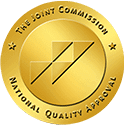
Backed by The Joint Commission which ensures programs adhere to the highest quality of clinical and medical practices.

Full member of the National Association of Therapeutic Schools and Programs (NATSAP), which ensure regulation of programs that serve children and adolescents.
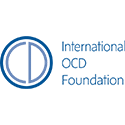
Full Member of the International OCD Foundation, which ensures our staff has access to the most up-to-date OCD treatment practices and research.
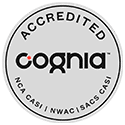
This program is proud to be Cognia Accredited. Cognia provides accreditation to schools that have earned recognition for their reputation and high educational standards.
Additional Resources
- Exposure and Response Prevention (ERP) | International OCD Foundation
- About ERP for Teen OCD | International OCD Foundation
- ERP for Children and Teens | Anxiety & Depression Association of America
- Skillfully Building Motivation Toward Exposure Therapy | Anxiety & Depression Association of America
- Obsessive Compulsive Disorder Fact Sheet | American Psychological Association
- What Is Obsessive-Compulsive Disorder? | American Psychiatric Association
- Behavior Therapy Training Institute (BTTI)
About the Authors

Bryan Wilde, LCSW
Executive Director
Bryan is a proud native of Utah. He holds a Master of Social Work degree from the University of Utah, and is a certified ERP therapist through the Behavior Therapy Training Institute (BTTI). Bryan started his therapy career by providing care to adolescents at Island View Residential Treatment Center. Co-founding Pathways to Healing in Bountiful, Utah allowed him to further expand his professional endeavors as a Clinical/Program Director. In addition, Bryan has worked extensively in private practice specializing in working with adolescents and families dealing with mood disorders, anxiety, obsessions and compulsions, trauma, and addiction. His therapeutic approach is comprehensive and emphasizes building strong relationships as the cornerstone for success. Bryan firmly believes in establishing rapport and trust to guide students and families toward realignment. Students at WayPoint describe Bryan as authentic and fair while also recognizing his unwavering dedication as an advocate for their health and well-being. Bryan's exceptional clinical abilities are complemented by his active involvement as an administrator at WayPoint, where he effectively oversees multiple departments. In his leisure time, Bryan enjoys running and spending quality time with his family

Mark Rainsdon, LCSW
Clinical Director
As the clinical director at WayPoint Academy, Mark Rainsdon, LCSW brings a wealth of experience and expertise to our team. Having earned a Master's in Social Work from the esteemed University of Utah, Mark possesses a range of qualifications that distinguish him as a specialist in the field. He has obtained certification as an Autism Spectrum Disorder Clinical Specialist (ASDCS) and is a BTTI-certified ERP therapist. His expertise lies in aiding teenagers struggling with severe anxiety and Obsessive-Compulsive Disorder (OCD), along with students facing neurodiversity-related difficulties. In 2012 Mark got his start in the world of mental health by teaching social skills classes to elementary school students. Since then he has worked in various roles across the mental health field, including as a field staff and primary therapist in wilderness therapy and other treatment programs. Since first joining WayPoint in 2018, Mark has helped countless teens and their families find hope and overcome their mental health struggles. Outside of work, Mark's favorite things to do include spending time with his family, making things, and soaking up the great outdoors.
Contact WayPoint Academy today to learn how our specialized anxiety treatment program can guide your teen towards a brighter, more fulfilling future.


